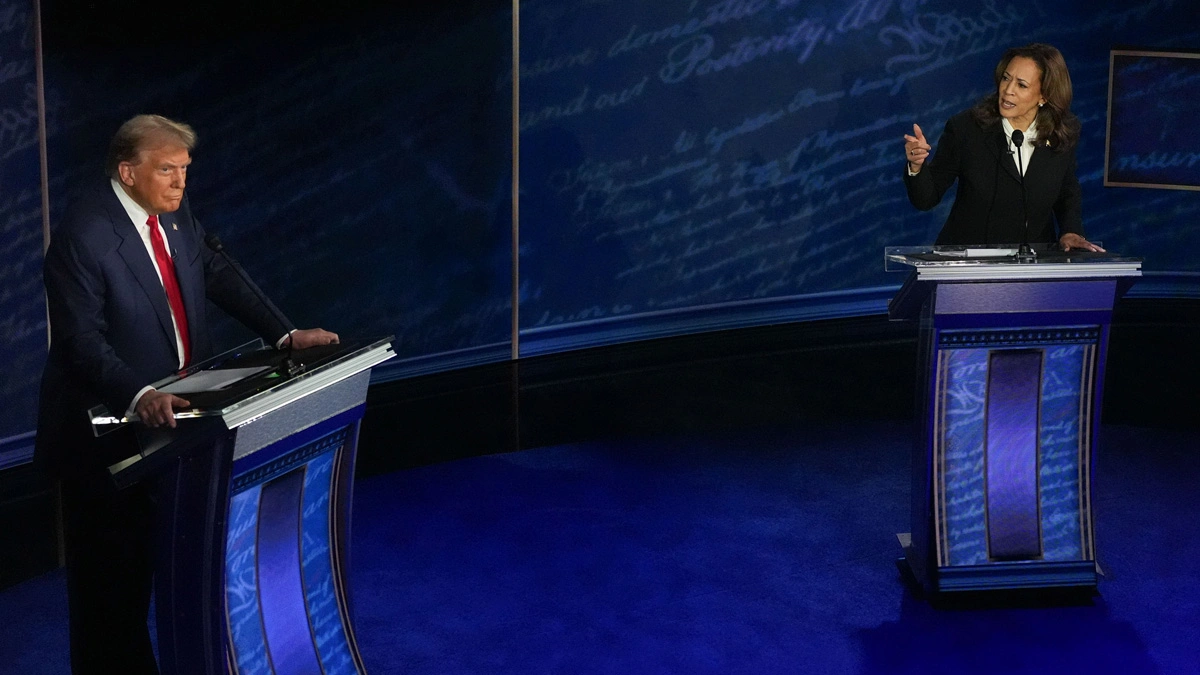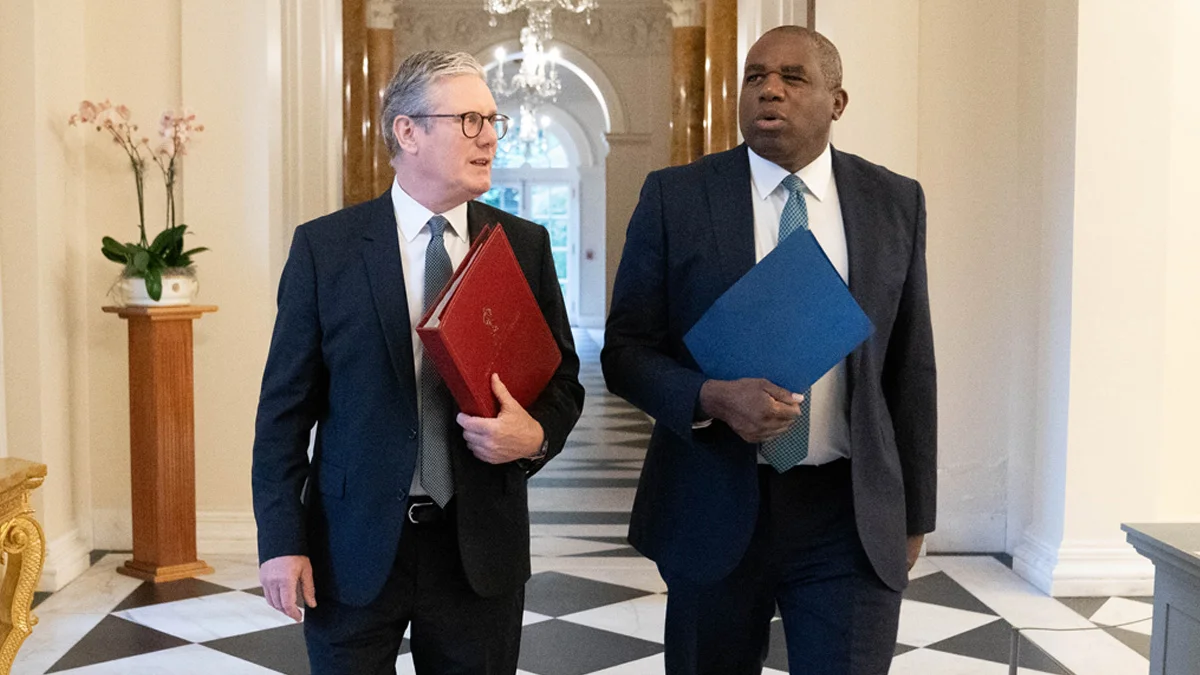
Britain's new foreign secretary has made no secret of his views of Donald Trump. Before being elevated to high office David Lammy variously branded him a “neo-Nazi sympathising sociopath”, a “tyrant in a toupee” and a “dangerous clown”.
Sir Keir Starmer, the prime minister, has been more careful in his language but said last year that a Trump victory would not be the “desired outcome” and that there was a “great deal of concern” that he may change the US position on Ukraine.
Starmer and Lammy now face the delicate challenge of attempting to rebuild relations with Trump and his senior team amid the very real prospect that he could become the 47th President of the United States on November 5.
Given Lammy's public interventions in the past, the fact that Trump is notorious for harbouring grudges is unlikely to help. But if Starmer has proven anything in his tenure as Labour leader, it is that he can be both flexible and pragmatic, and is prepared to put his personal views aside to achieve what he wants.
The prime minister's approach is to focus on the relationship rather than the individual. In a “grown-up world, you have to make that relationship work”, whether or not you agree. The special relationship, he has said, is vital. “I'll work with whoever is president.”
He demonstrated this in July when Trump survived an assassination attempt at a rally in Pennsylvania. While most world leaders expressed their sympathy in public statements, Starmer — then just days into his premiership — took the decision to call Trump directly.
The call may have lasted minutes but diplomats suggest that Trump is likely to remember it, given the importance he places on personal interactions. Starmer hopes that it will be a template for future relations should Trump return to the White House.
The call was organised by Dame Karen Pierce, the British ambassador to the US, who has built a network of senior Republicans. Rishi Sunak had planned to replace her with Sir Tim Barrow, a veteran diplomat, but the appointment was blocked by Starmer pending the outcome of the US election.
Should Trump win, there is a significant chance she will stay. Pierce herself has made clear that she would like to remain in post, having joked that she will have to be “dragged out of [here] by my fingernails”.
Lammy's friends say he has come a long way from the excoriating social media messages he wrote about Trump when he was a backbencher. As shadow foreign secretary he courted JD Vance, the Ohio senator who is Trump’s running mate, with some success.
Lammy has said they have much in common. Both are from working-class backgrounds, both from families that have struggled with addiction and both men are committed Christians.
“We’ve written books on that, we’ve talked about that, and we’re both Christians,” he said. “So I think I can find common ground with JD Vance.”

Lammy appears to take heart from something else they have in common — both have compared Trump to Hitler in the past. However, while Vance has undergone a damascene conversion, Lammy has never apologised for his comments.
Significant differences remain. Earlier this year reports that Lammy was in daily contact with Trump’s team were publicly rubbished by Chris LaCivita, the former president’s campaign manager. “Fake news apparently on the other side of the pond. Other than a 10 minute perfunctory meeting there is no contact.”
The potential issues with a Trump administration are manifold. There are concerns that Trump will pressure Ukraine to reach an agreement with Russia, potentially at odds with the UK, and Trump's unconditional support for Israel is distinct from Starmer's more nuanced position. While Labour is pushing for a pragmatic relationship with China, Trump's position is far more hardline and could end in an all-out trade war.
Lastly, Trump's "America-first" approach could do significant damage to Starmer's central mission — economic growth. He has floated the idea of an automatic 10 per cent tariff on all goods imported to the US in an echo of the tariffs he imposed on imported aluminium and steel during his first administration. For a government committed to growth at almost all costs, US tariff barriers would be hugely damaging.
So what of Starmer's “desired outcome” — Kamala Harris and the Democrats? If Harris wins, Starmer is expected to make a political appointment as US ambassador. David Miliband, the former foreign secretary, is being considered along with Baroness Ashton of Upholland, a former EU High Representative for foreign affairs.
The connections between Labour and the Democrats are extensive. Lammy is a close friend of Barack Obama, the former US president, and met Harris when she was senator for California. Rachel Reeves has met Janet Yellen, the US treasury secretary, on repeated occasions and some Labour figures are heading across the Atlantic to work for Harris.
Deborah Mattinson, Starmer's head of strategy, is going to work for a Democrat think-tank as part of an expected exodus of Labour aides. Starmer himself has yet to meet Harris but the two lawyers share much in common.
However, even with such close political allies, the special relationship is never straightforward. There is already a very public split over Britain's decision to impose restrictions on arms sales to Israel, with the US refraining from following suit. Harris has suggested that she will not impose any conditions on the sale of arms to Israel.
There is also defence spending, with the US pressing Nato allies to spend more. The prime minister has committed to increasing defence spending to 2.5 per cent of GDP but has declined to specify a date. Given the greater scale of US defence spending, there are clearly questions about how tenable this approach will be.
While Starmer's landslide election victory was undeniably a historic moment in British electoral history, the outcome of the US election could ultimately prove far more consequential for the UK — and the rest of the world.
Steven Swinford is the political editor of The Times.
Related and recommended

The technology is being used to redefine leadership, strategy and time management for modern bosses

Ebike entrepreneur Caroline Seton explains why start-ups should withstand external pressures to change course

Tom Crowley explains his philosophy for running successful high street food businesses

The travel tour entrepreneur’s business is thriving after the pandemic because she listened to customers

